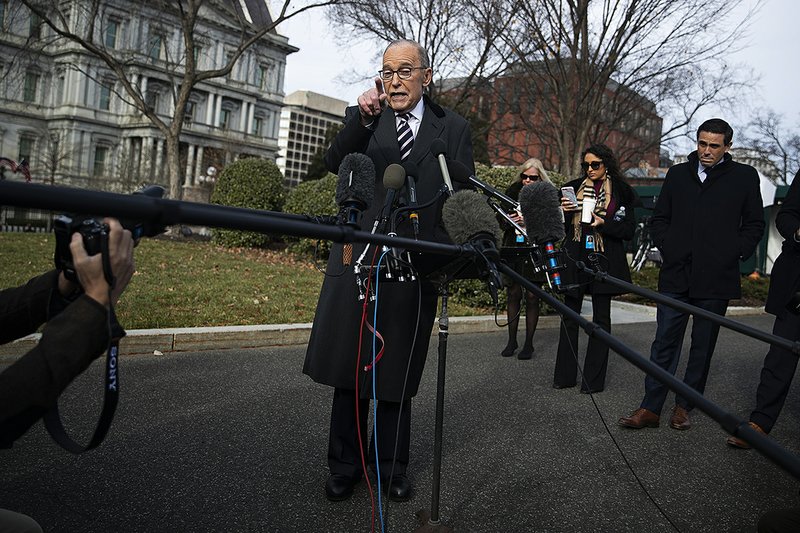China is waiving punitive tariffs on U.S. soybeans and pork while the two sides negotiate a trade deal, the Ministry of Finance said Friday.
Chinese officials promised in September to lift the tariffs, adding to conciliatory steps that raised hopes for a settlement. The government announced then that Chinese importers were placing orders but no details of when the tariff exemption would take effect were released.
China is "carrying out the exclusion," the Ministry of Finance said on its website. The ministry and the Ministry of Commerce did not respond to requests for further information.
Negotiators are working on the details of a so-called phase 1 agreement announced in October by President Donald Trump.
The two sides have raised tariffs on billions of dollars of each other's goods, disrupting global trade and threatening to depress economic growth.
Another U.S. tariff increase on an additional $160 billion of Chinese imports is set to take effect Dec. 15.
Chinese spokespeople have expressed hope for a settlement "as soon as possible," but Trump spooked global financial markets this week by saying he might be willing to wait until after the U.S. presidential election late next year.
A sticking point is Chinese insistence that Washington must roll back punitive tariffs as part of any deal.
A Chinese spokesman repeated Thursday that China expects such a move in a phase 1 agreement.
White House economic adviser Larry Kudlow confirmed Friday that the U.S. and China are trying to agree on the amount of American agriculture products that Beijing is willing to purchase.
The two sides are in "almost around-the-clock" negotiations on some of the most "delicate" matters, including a dollar amount of commodity purchases, he said Friday in an interview with Bloomberg Television.
"The final strokes are not there, we're coming down to short strokes," he said. "Now, some of the most delicate matters have to be adjudicated, discussed, analyzed and evaluated. And then it will be presented to President Trump, and he'll take a look at it."
While negotiators are close to phase one of a broader trade deal and "progress has been made," they haven't yet put anything in writing and top officials have no current plans to meet face to face, he said.
"There are no arbitrary deadlines on any of this," Kudlow said. "On the other hand, Dec. 15 is a very important date, because if the agreement isn't complete, our current law will restore tariffs."
Eight weeks ago, Trump announced that a phase one agreement had been reached between Washington and Beijing, subject to getting it down on paper in a process that might take three to five weeks. According to Trump at the time, China agreed to $40 billion to $50 billion in U.S. agricultural goods annually -- a quantity so large, he indicated, that farmers should invest in more equipment and land.
Asked Friday about the president's advice, Kudlow stopped short of repeating it.
"I don't want to tell the farmers what they should and should not do," he said. "I'm not going to give them free advice on how they run their businesses."
Soybean prices rose in Chicago on Friday, rising 5.25 cents to $8.8950 a bushel. China is the top consumer of soy, and U.S. shipments have been impeded by the tariffs.
February lean hog futures jumped as much as 3.7%. January soybeans rose as much as 1.1%, heading for the fourth straight day of gains -- the longest streak since September. Prices for each had floundered recently on dimming prospects for a U.S.-China accord.
The deadly African swine fever virus that has killed tens of millions of hogs in China and elsewhere in Asia prompted an urgent need for meat imports. Waiving tariffs would open the door for supplies to flow more freely.
"I think a trade deal is imminent and it's going to get done," Dennis Smith, senior account executive at Archer Financial Services Inc. in Chicago, said by phone of the tariffs.
Information for this article was contributed by The Associated Press and by Brendan Murray, Jonathan Ferro, Megan Durisin, James Poole and Michael Hirtzer of Bloomberg News.
Business on 12/07/2019
